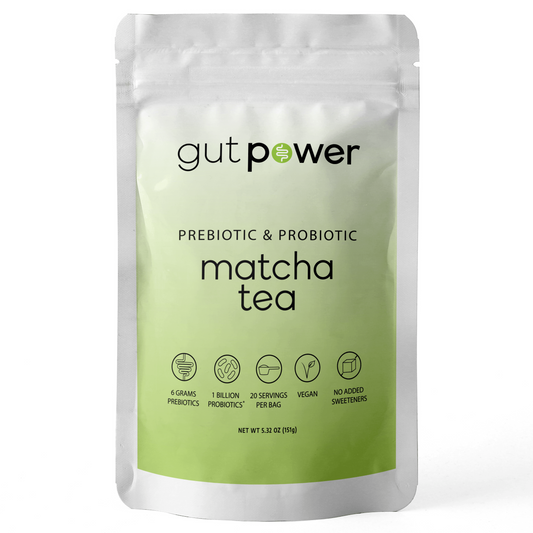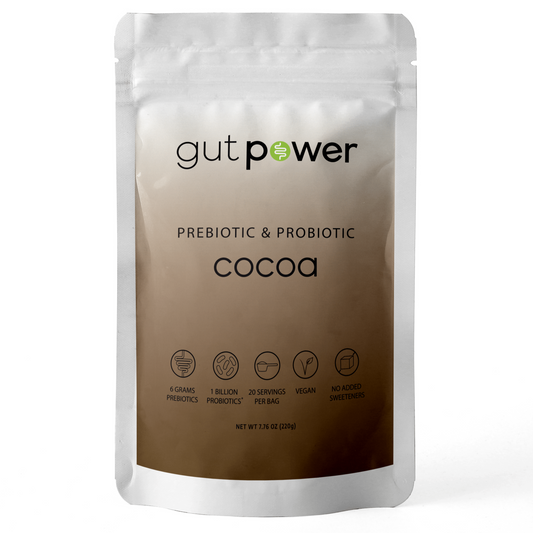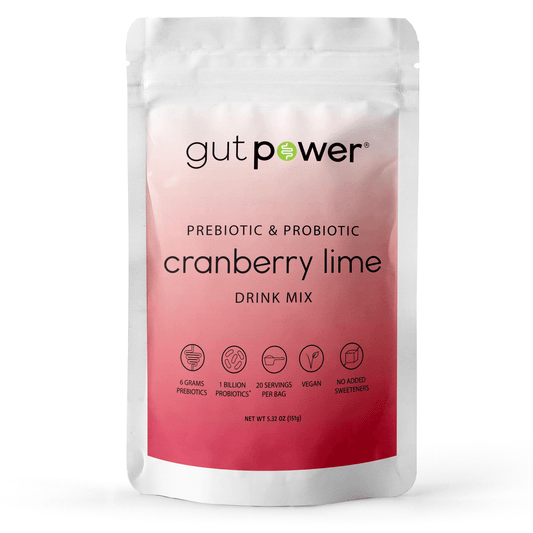Low stomach acid can play a role in digestive symptoms like heartburn, burping, nausea, or bloating. Learn how to assess low stomach acid and what you can do to improve your levels.
What is Low Stomach Acid?
Stomach acid, also known as gastric acid, is the digestive fluid produced in your stomach.
Stomach acid does a few key tasks for you:
- It helps break down the food you eat. This is a vital process that allows you to absorb key nutrients from your food. Without stomach acid to help break down food and release nutrients for absorption, you may be at risk of developing nutritional deficiencies.
- It protects you from potentially harmful bacteria and pathogens. Your insides are exposed to a lot of bacteria - if that bacteria isn’t dealt with, it can cause lots of unpleasant symptoms. Luckily, stomach acid - because of its acidity - helps to kill off potentially harmful bacteria and pathogens.
Without enough stomach acid, you may be at risk of nutrient deficiencies and exposure to potentially harmful pathogens.
Symptoms of Low Stomach Acid
Clearly, having enough stomach acid is important to ensure you are able to absorb the nutrients in your food and to protect yourself from potentially harmful bacteria. So how do you know if you don’t have enough?
You may have low stomach acid if you experience these symptoms (1) :
- Heartburn (this may seem counterintuitive, but heartburn can be caused by too much stomach acid or not enough)
- Gas and bloating, especially after eating
- Burping
- Nausea (especially when taking supplements)
- Trouble digesting meat
- Undigested food in stools
- Nutrient deficiencies
- More
These symptoms can also be signs of other digestive conditions, such as IBS or imbalanced gut bacteria, so it’s essential to work with a health professional to determine exactly what is causing your symptoms.
Your healthcare provider may want you to complete a low stomach acid test, like the Heidelberg test to determine your stomach acid levels.
What Causes Low Stomach Acid?
If you have low stomach acid, you may be wondering why that’s the case. Let’s go over some of the reasons low stomach acid can develop.
Low stomach acid may be caused by:
- Age
As you get older, you produce less stomach acid. If you’re over 65 years old, you are most at risk of having low stomach acid.
- Vitamin deficiencies
A lack of zinc and B12, particularly, can reduce stomach acid secretion. To handle this, work with a healthcare provider to increase your intake of these vitamins with supplements and food. (2)
- Some medications
Some medications reduce stomach acid production, too. If you feel these medications may be impacting your digestive wellness, talk with your healthcare provider. (3)
- A history of stomach surgeries
A history of stomach surgeries may also predispose you to reduced stomach acid production. (4)
- Dysbiosis or infections
An imbalanced microbiome (dysbiosis) or infections like H. pylori may be responsible for low stomach acid levels. Work with a healthcare professional to determine if this could be the case for you. (5)
- Stress
Believe it or not, stress is a big one. High concentrations of stress hormones like cortisol may prevent proper secretion of stomach acid. (6)
What You Can do to Help Low Stomach Acid
There are many lifestyle factors that can be helpful when it comes to increasing low stomach acid levels.
Let’s look at a few things you can do to up your stomach acid game right now.
- Focus on your food
We live in a busy world, but rushing through meal time can hinder stomach acid and digestive enzyme production.
Has your mouth ever watered after smelling food nearby? That’s your body beginning the digestive process. Smelling and looking at food stimulates stomach acid, digestive enzyme, and saliva production to make sure you have everything you need to properly digest your food.
When meal time comes around, take a moment to look at your food, take a deep breath, and smell the delicious food you’re about to consume - your stomach will thank you for it.
- Take prebiotics and probiotics
At the core of a healthy digestive system is a healthy gut microbiome. This collection of bacteria, yeasts, and viruses helps your digestive system function its best. But in order to do that, your gut microbiome needs to be balanced.
That means it has plenty of healthy bacteria and low levels of inflammation.
Taking prebiotics and probiotics is a great way to encourage a balanced microbiome. You can incorporate these in the form of food or supplements - whatever is easiest for you!
- Consume digestive-stimulating herbs like ginger
Herbs like ginger and black pepper have been shown to increase stomach acid levels. Ginger also has anti-inflammatory properties, and low levels of inflammation in the gut is great for digestive wellness. (7)
- Stress less
Incorporate stress management techniques like deep breathing, meditation, yoga and more to keep stress levels low. Since stress lowers stomach acid levels, reducing your stress levels can go a long way towards ensuring proper stomach acid production.
- Work with a healthcare professional to incorporate digestive enzymes, hydrochloric acid, and pepsin
If the above tips don’t provide as much relief as you need, work with a healthcare professional to discuss the use of digestive enzymes, HCl and pepsin supplementation. While these supplements can be helpful, they can also backfire if used for the wrong reasons - best work with a pro when it comes to adding these into your routine.
The Bottom Line: Address Low Stomach Acid
Low stomach acid can cause a whole host of uncomfortable issues, including digestive problems, nutrient deficiencies, and infections.
Work with a healthcare provider to determine if low stomach acid is an issue for you.
In addition to working with your doctor, you can incorporate lifestyle changes such as reducing stress, taking the time to smell your food, and incorporating prebiotics, probiotics, and digestive-stimulating herbs like ginger to help encourage proper stomach acid production.
References:
Cheng, Jing, and Arthur C Ouwehand. “Gastroesophageal Reflux Disease and Probiotics: A Systematic Review.” Nutrients, MDPI, 2 Jan. 2020, www.ncbi.nlm.nih.gov/pmc/articles/PMC7019778/.
DA; Schubert ML; Peura. “Control of Gastric Acid Secretion in Health and Disease.” Gastroenterology, U.S. National Library of Medicine, 2008, pubmed.ncbi.nlm.nih.gov/18474247/.
Emery, Gene. “Newer Weight-Reduction Surgery Effective, but May Worsen Acid Reflux.” Reuters, Thomson Reuters, 16 Jan. 2018, www.reuters.com/article/us-health-obesity-bariatric-surgery/newer-weight-reduction-surgery-effective-but-may-worsen-acid-reflux-idUSKBN1F522G.
Fatima, Rawish. “Achlorhydria.” StatPearls [Internet]., U.S. National Library of Medicine, 24 May 2020, www.ncbi.nlm.nih.gov/books/NBK507793/.
“Ginger.” National Center for Complementary and Integrative Health, U.S. Department of Health and Human Services, 2016, www.nccih.nih.gov/health/ginger.
SP; Stabler. “Clinical Practice. Vitamin B12 Deficiency.” The New England Journal of Medicine, U.S. National Library of Medicine, 2013, pubmed.ncbi.nlm.nih.gov/23301732/.





